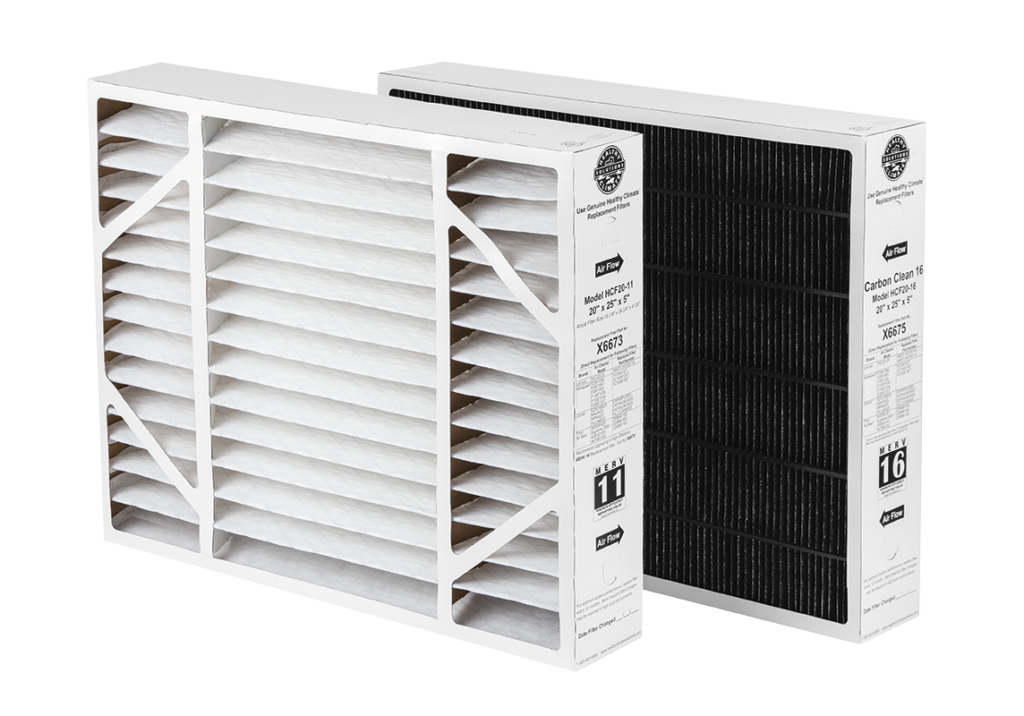A Complete Guide to HVAC Filters
HVAC systems have filters that capture airborne particles such as dust, pollen, pet hair and more to prevent them from circulating indoors. Most experts recommend that you change your air filter on HVAC appliances every 90 days. However, this timeline can vary depending on the age of your system, your local climate, if you have pets and the frequency of use of the system.
If you’ve reached the 90-day timeline or suspect your HVAC system needs a new filter, you’ve come to the right place. Keep reading to learn more about why you need to change your HVAC filters and how to select the right kind.
What Is an HVAC Filter?
An HVAC air filter is a semi-permeable shield inside your HVAC system. This shield acts as a barrier between the system and your home. As the system pulls in air to warm or cool, the filter removes any unwanted contaminants to keep the air you breathe clean and fresh.
Why Changing HVAC Filters Matters
Changing your HVAC air filter is essential for many reasons:
- System Longevity: By taking care of your system and replacing the filters according to the manufacturer’s recommendations, you can prolong the system’s life.
- Save on Costs: An HVAC system with a clogged or dirty filter needs to work harder to do its job, which means using more energy and increasing utility costs.
- Dirty Air: A clogged air filter can circulate pollen, dust, and other contaminants throughout your home. In some cases, this can even lead to health issues, especially for people with allergies or respiratory illnesses.
- Poor Temperature Regulation: An HVAC system with a clogged filter can’t function efficiently, leading to poor circulation and inconsistent indoor temperatures from room to room.
Factors to Consider When Buying an HVAC Filter
When you’re ready to purchase your HVAC filter, you might become overwhelmed by all the options on the market. There are countless varieties, and it can be hard to know which one you’re supposed to get. To help you identify your best option, here are the most critical HVAC filter factors you should consider:
- Filter Material: HVAC filters come in a variety of materials, each suited to different needs and environments. Common options include fiberglass, which is inexpensive and provides basic filtration, ideal for protecting HVAC systems from large particles. Pleated filters, often made from cotton or polyester, offer a higher level of filtration by trapping smaller particles, making them suitable for homes and businesses that need improved air quality. Electrostatic filters, which can be washable or disposable, use static electricity to attract and capture particles, offering a more efficient and eco-friendly option. High-efficiency particulate air (HEPA) filters, made from dense fiberglass or synthetic materials, provide the highest level of filtration, capable of trapping 99.97% of particles as small as 0.3 microns, making them essential in environments requiring the highest air quality, such as hospitals and clean rooms. Additionally, activated carbon filters are available to remove odors and chemicals from the air, making them ideal for spaces where air quality concerns go beyond just particulates.
- MERV Rating: The minimum efficiency reporting value (MERV) identifies an air filter’s efficiency at capturing particles. The higher the MERV rating, the better its filtration performance. However, note that you must choose a MERV rating that is compatible with your system. Going above what is recommended can reduce efficiency and increase energy costs. The rating scale goes from MERV 1 to MERV 20.
- Consider Your Needs: If someone in your household has allergies or respiratory health concerns, you’ll want to invest in the best HVAC filters possible. This means choosing HEPA filters and higher MERV ratings.
- Longevity: Ensure you read the filter’s life span and consider that before making a purchase. Some filters last only a month, while others can last as long as 12 months with proper care.
Steps to Choosing an HVAC Filter
Here are the steps to take when choosing your HVAC filter:
- Identify what material and MERV rating you want.
- Measure your air filter so you know what size you need to get.
- Purchase and install your filter.
- Read the manufacturer’s directions and care for the filter as needed.
- Keep track of when the air filter should be replaced. A maintenance agreement with Simons Heating & Cooling ensures you stay on top of your filter replacement schedule.
Get Your New HVAC Filter Today
Now you’re ready to replace your HVAC filter and have clean, fresh air again. Simons Heating & Cooling has a wide range of filters on our online shop that you can have shipped directly to your home.
Once you find the perfect filter, you can even set up a subscription for competitively priced, high-quality filters to be shipped straight to you on your replacement schedule!


